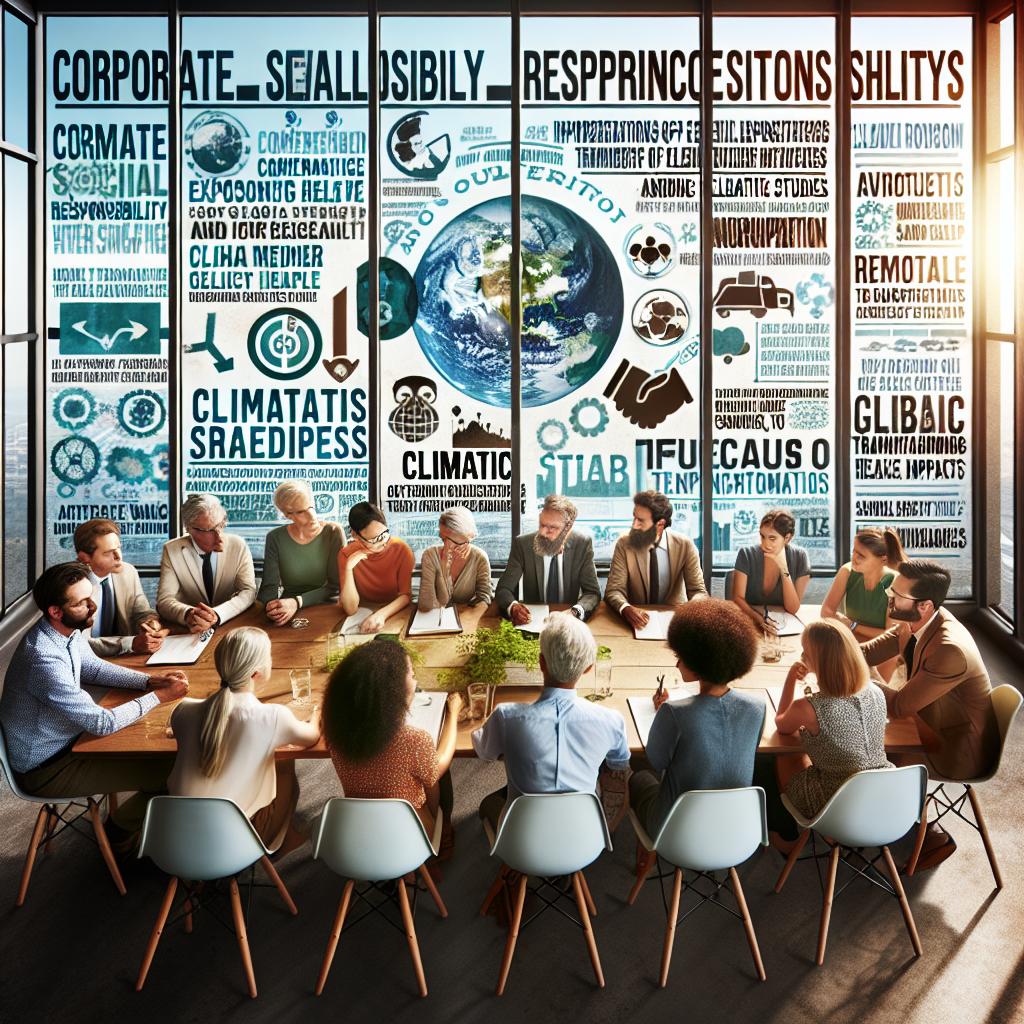Corporate Conscience

In the rapidly evolving business landscape, corporate social responsibility (CSR) has emerged as a vital driver of growth and innovation. Forward-thinking companies are recognizing the importance of balancing economic gains with positive social and environmental impacts. Three key areas where this trend is particularly noteworthy are sustainable transportation, climate health effects, and education.
First, CSR-committed companies are increasingly focusing on sustainable transportation as a means to reduce their carbon footprint and contribute to a cleaner environment. Companies like Volvo, Daimler, and Tesla are leading the charge with their commitment to electric vehicles (EVs) and investments in charging infrastructure. This shift towards sustainable transportation is not only essential for preserving our planet but also makes good business sense. A study by the American Lung Association found that the transportation sector contributes to approximately half of the country's smog-forming emissions, which can lead to health problems like asthma and heart disease. By investing in cleaner alternatives, companies are not only reducing their environmental impact but also contributing to better public health.
Second, the health effects of climate change are becoming increasingly evident, making climate education a critical component of CSR efforts. According to the World Health Organization, climate change is expected to cause approximately 250,000 additional deaths per year between 2030 and 2050. Companies are recognizing their role in raising awareness and taking action to mitigate these health risks. For instance, Microsoft has committed to carbon neutrality by 2030 and is investing in renewable energy projects and carbon removal technologies. The tech giant is also providing climate education resources for its employees and customers, helping to build a more informed and engaged public.
Third, education plays a crucial role in fostering a sustainable future. Companies like Unilever, Patagonia, and Amazon have recognized this need and are investing in climate education initiatives. Unilever's Sustainable Living Plan includes a commitment to helping more than one billion people adopt sustainable living practices by 2020. Patagonia's environmental activism extends beyond its products, with the company offering educational resources and taking a vocal stance on climate issues. Amazon's Climate Pledge, which commits the company to reaching net-zero carbon emissions by 2040, includes a commitment to funding climate science research and supporting climate education initiatives.
The intersection of these topics is the recognition that businesses have the power to effect change on a global scale. By investing in sustainable transportation, addressing climate health effects, and promoting climate education, companies can lead the way in creating a more sustainable future.
One notable example of a company making strides in all three areas is IKEA. The furniture retailer aims to become climate positive (reducing more greenhouse gas emissions than the IKEA value chain emits) by 2030. IKEA is investing in renewable energy and energy efficiency, offering electric vehicle charging stations at its stores, and providing climate education resources for its customers. The company also aims to eliminate all single-use plastic products from its supply chain by 2025.
Another company, Starbucks, has set a goal to become "resource positive" – storing more carbon than it emits, eliminating waste, and providing more clean freshwater than it uses – by 2030. Starbucks is investing in renewable energy and sustainable transportation, offering discounts to customers who use reusable cups, and providing climate education resources for its employees and customers.
These companies and others are demonstrating that corporate social responsibility is not just a buzzword but a genuine commitment to creating a better world. By addressing sustainable transportation, climate health effects, and education, companies are not only making a positive impact on the environment and public health but also building trust and loyalty with their customers and employees.
In conclusion, the intersection of corporate social responsibility, sustainable transportation, climate health effects, and climate education is a powerful combination that can lead to a more sustainable and equitable future. Companies that invest in these areas are not only making a difference but also setting the bar for future generations. As consumers and stakeholders, we have the power to support these companies and demand that others follow suit. Together, we can create a world where businesses and the environment thrive in harmony.




